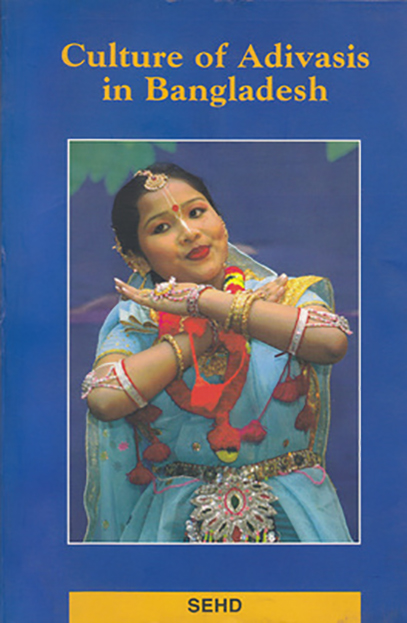
- Shop
- Culture of Adivasis in Bangladesh
Culture of Adivasis in Bangladesh
Book Info
Culture of Adivasis in Bangladesh Bangladesh is geographically a small country. But it is rich in ethnic and cultural diversity. Different ethnic communities (27) according to the population census and more than 45 according to other sources) concentrated in the Chittagong Hill Tracts in the Southeast, North, Northeast, North- central plains and the coastal districts of Cox's Bazar, Barguna and Patuakhali, demonstrate unique cultures, traditions, knowledge and much more. Bangladesh can surely take pride in these communities who not only present diverse cultural life, their languages and cultures also enrich the language and cultural life of the majority Bangalis, as many linguistics. and cultural experts assert. Many songs and dances and elements of Bangali lifestyle are rooted in Adivasi culture. are However, the people of the majority community know little about these people, their cultures and how they progressively cornered due to development actions and many other socio-economic pressures. The scopes for interaction between the smaller ethic communities and Bangalis are inadequate indeed. In its work for a decade and half in the areas of human rights and environment, the Society for Environment and Human Development (SEHD) has been particularly attending issues concerning Adivasis and their struggle for legitimate rights. "Culture of Adivasis in Bangladesh" is a result of its efforts to promote the diverse cultures in Bangladesh. SEHD initiated a cultural program since 2004 aiming at facilitating interaction and solidarity among peoples of different. cultures and promoting cultural diversity. The book also presents insightful highlights of different aspects of the cultural program and the harsh realities associated with life. and culture of Adivasis.

Philip English
PHILIP GAIN is trained as a journalist and writer, but his predilection for images and the issues concerning forests, forest dependent people and their cultural life has brought him close to the ground realities. That he has also not missed the beautiful minds, hearts and hospitality of different forest dependent people is evident from the images that are presented in this book. Philip Gain received an M.A. in Mass Communication and Journalism from University of Dhaka in 1987; awarded Ashoka fellowship in 1989; awarded Alfred Friendly Press Fellowship (US) in 1993; and elected World Fellow of Yale University (US) in 2002. Currently, he runs Society for Environment and Human Development (SEHD). Philip Gain has authored and edited more than a


